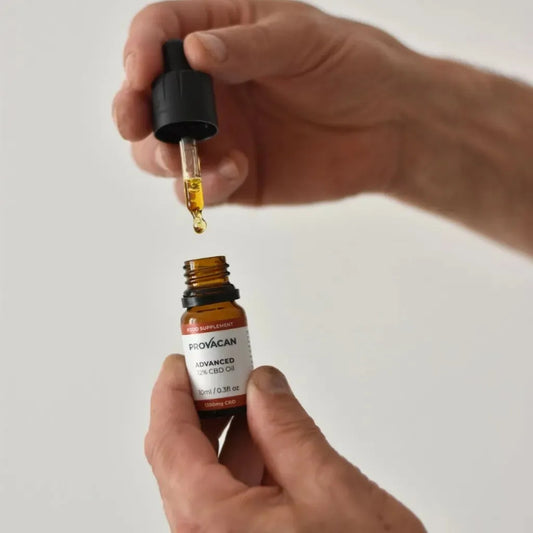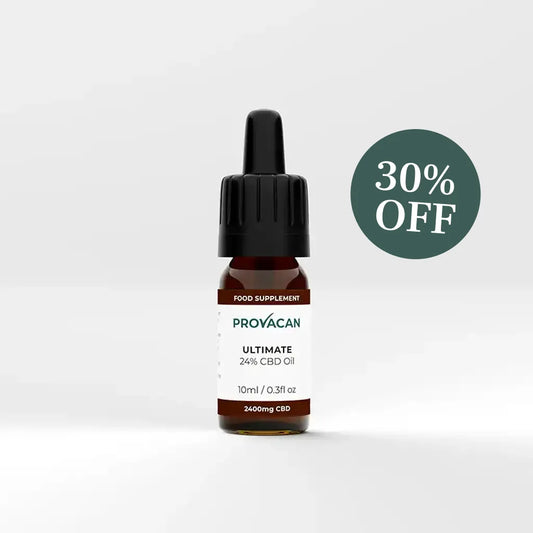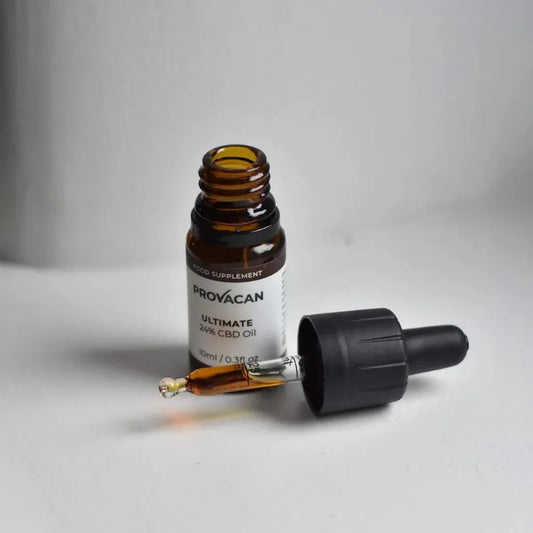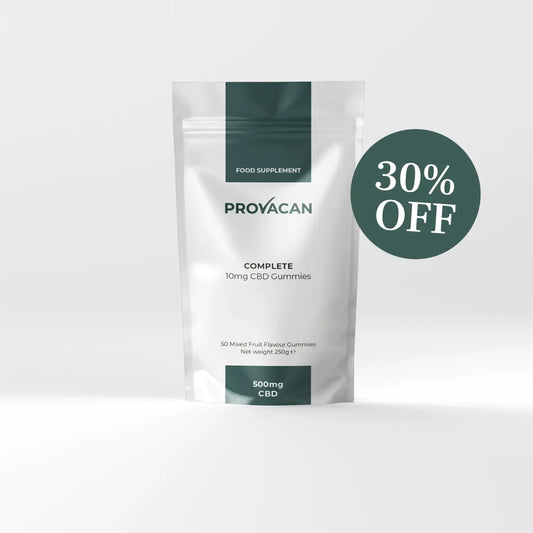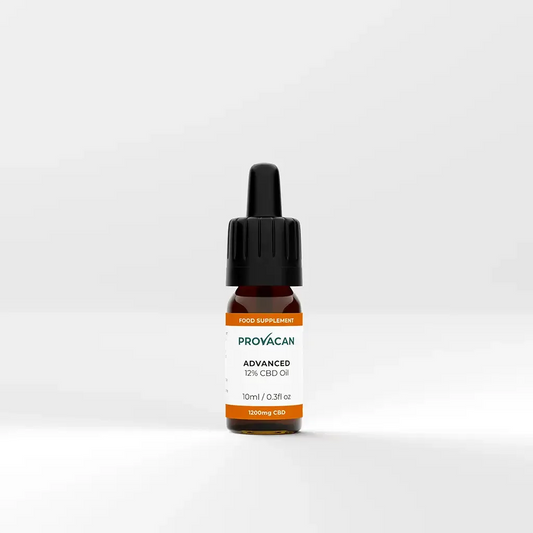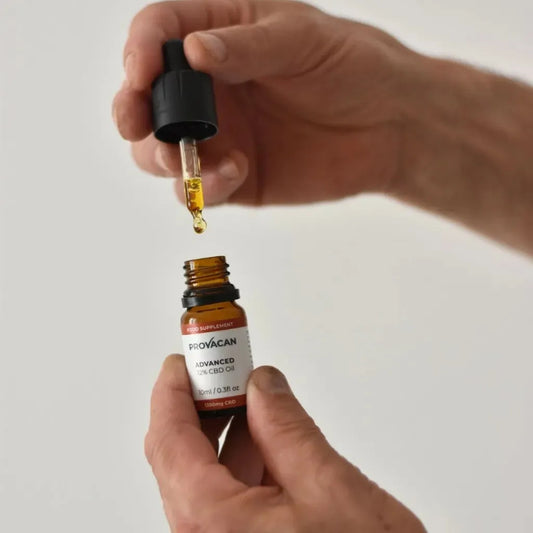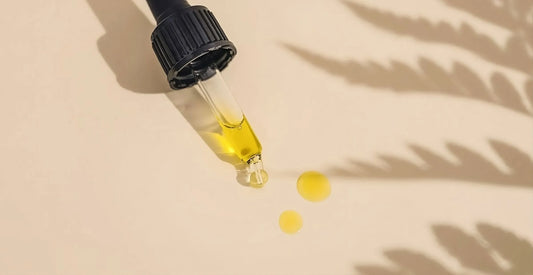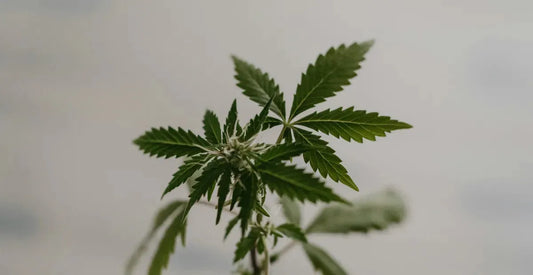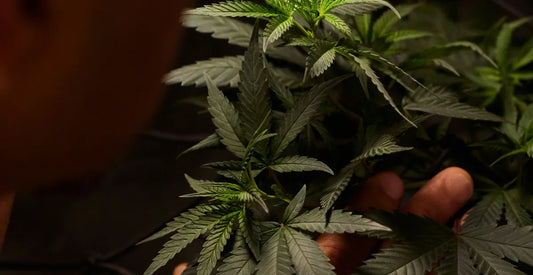Key takeaways:
- What is the endocannabinoid system (ECS): The ECS is a vital network in the body that helps regulate mood, sleep, pain, and immune function through its natural compounds and cannabinoid receptors.
- How cannabinoid receptors work in the ECS: CB1 and CB2 are the primary cannabinoid receptors, each playing distinct roles in the brain, nervous system, and immune response to maintain endocannabinoid system function.
- Supporting your endocannabinoid system with CBD: CBD and other phytocannabinoids may help support your endocannabinoid system by promoting balance, enhancing receptor activity, and encouraging natural endocannabinoid production.
If you're a Provacan customer, chances are you’ve experienced the many benefits of CBD oil firsthand – from feeling more relaxed, sleeping more deeply, to easing those stubborn aches. While CBD’s effects can seem almost too good to be true, there’s a fascinating biological reason behind this wide range of benefits: the endocannabinoid system, or ECS for short.
We’re going to explore what is the endocannabinoid system, how it works, and why CBD plays such a powerful role in supporting it. Whether you’re new to CBD or simply curious about what’s happening inside your body when you take it, this guide is here to help.
What is the Endocannabinoid System?
In simple terms, the endocannabinoid system (ECS) is an internal network made up of naturally produced compounds (called endocannabinoids) and the receptors they interact with. Let’s break the term down:
- Endo = meaning “inside us”
- Cannabinoids = chemical compounds that interact with specific receptors in our body
Think of the ECS as your body’s very own cannabinoid system, operating 24/7 to help maintain balance – also known as homeostasis.
The endocannabinoid system is involved in regulating a wide variety of essential bodily functions, including:
- Sleep
- Mood and emotion
- Appetite and digestion
- Memory and learning
- Immune function
- Inflammatory responses
- Stress levels
- Pain perception
While it was only discovered in the early 1990s, the ECS has since been recognised as one of the most important systems in the human body – and it exists in nearly every animal species on earth, from mammals to birds and even some fish! Researchers continue to study endocannabinoid system function today thanks to its role in regulating so many essential processes.
The 3 key components of the endocannabinoid system
Despite being such a far-reaching system, the endocannabinoid system is made up of just three main components:
1. Cannabinoid receptors (CB1 and CB2)
These are known as cannabinoid receptors – like tiny docking stations located all throughout the body. When cannabinoids bind to these receptors, they initiate a chain of responses that help bring the body back into balance.
CB1 and CB2 are the two primary (and currently the only well-characterised) types of cannabinoid receptors in the human endocannabinoid system. While researchers suspect there may be additional cannabinoid receptors, CB1 and CB2 remain the focus of scientific study at this time.
- CB1 receptors are primarily found in the brain and central nervous system, where they influence things like memory, mood, fear, pain, and pleasure.
- CB2 receptors are mostly located in the immune system, gut, and peripheral organs, where they help regulate inflammation and immune responses.
2. Endocannabinoids (anandamide & 2-AG)
These are the natural cannabinoids your body produces on its own to support endocannabinoid system function. They work by activating cannabinoid receptors, helping to keep things like mood, sleep, and pain in balance. The two most well-known are:
- Anandamide: often referred to as the “bliss molecule” due to its role in mood and happiness.
- 2-AG (2-arachidonoylglycerol): more abundant than anandamide and plays a major role in immune system signalling.
These molecules are created and used on demand, meaning your body only produces them when it needs them, rather than storing them like other types of neurotransmitters.
3. Enzymes
Enzymes are responsible for breaking down the endocannabinoids once they’ve done their job. The two key enzymes are FAAH (which breaks down anandamide) and MAGL (which breaks down 2-AG).
How the CB1 and CB2 cannabinoid receptors work
Let’s take a closer look at how the two types of cannabinoid receptors function within the body.
CB1 receptors: The brain balancers
Located in areas of the brain linked to emotion, memory, pain, and reward, CB1 receptors play a major role in neurological and emotional regulation. When anandamide or THC (a phytocannabinoid from the cannabis plant) binds to these receptors, it can enhance mood, reduce pain, and even protect neurons from damage.
CB1 receptors are also believed to help reduce neuroinflammation, a common factor in many neurological disorders.
CB2 receptors: The immune system gatekeepers
CB2 receptors are more abundant in the body than the brain. They help regulate the immune response, control inflammation, and are involved in everything from gut health to hormonal balance.
The endocannabinoid 2-AG primarily interacts with CB2 receptors, which explains why it's so important for immune support.
Enter phytocannabinoids: Plant-based support for your ECS
Now that we’ve met our internal cannabinoids (anandamide and 2-AG), it’s time to introduce their plant-based counterparts: phytocannabinoids.
These are cannabinoids found in the cannabis plant – including CBD, THC, and lesser-known compounds like CBG, CBC, and CBN. When consumed, they can mimic or influence the endocannabinoids your body already produces, to support the endocannabinoid system function.
Here’s the key point: it’s believed that some people may experience endocannabinoid deficiency – a theory suggesting the body doesn’t produce enough endocannabinoids on its own or uses them up too quickly in times of stress or illness.
By supplementing with CBD and other phytocannabinoids, you may help bring your ECS back into balance.
How does CBD interact with the endocannabinoid system?
Unlike THC, CBD (cannabidiol) doesn’t directly bind to CB1 or CB2 cannabinoid receptors. Instead, it has a more subtle effect and influences the endocannabinoid system function in other ways – modulating the receptors and encouraging your body to produce and retain more of its own endocannabinoids.
It may also slow the breakdown of anandamide by inhibiting the FAAH enzyme, effectively boosting levels of this “bliss molecule” in your system.
And interestingly, CBD can counteract the psychoactive effects of THC. That’s one reason full-spectrum CBD oils (like those offered by Provacan) can be both effective and non-intoxicating.
Research so far suggests that CBD is safe, non-addictive, and well-tolerated, even in relatively high doses. That makes it a promising natural tool for supporting the ECS and promoting overall wellbeing.
Who might benefit from CBD supplementation?
While CBD isn't a cure-all, disruptions in endocannabinoid system function has been linked to a variety of health conditions – particularly those involving chronic stress, inflammation, or nervous system imbalances. These include:
- Mood disorders
- Migraines
- Seizures and epilepsy
- Autism spectrum disorders
- Autoimmune diseases
- Parkinson’s disease
- PMS and PMDD
- Fibromyalgia and IBS
Dr. Ethan Russo, a leading researcher in this field, theorised the idea of Clinical Endocannabinoid Deficiency (CECD) – a state where low levels of endocannabinoids could be the root cause of certain conditions that are otherwise hard to treat.
While more research is still needed, it offers a compelling explanation as to why CBD seems to help such a wide variety of people.
Final thoughts on what the endocannabinoid system is and how it supports your inner balance
The endocannabinoid system is a remarkable and intricate network that works tirelessly to maintain your body's balance. Whether you're struggling with stress, pain, sleep issues, or inflammation, the ECS is always there, and sometimes, it needs a little extra support.
That’s where CBD and other phytocannabinoids come in. By supplementing your body’s natural system, you’re not just masking symptoms – you’re supporting the very mechanisms that promote wellness from the inside out.
So, the next time you take your Provacan CBD oil, you’ll know exactly what’s going on behind the scenes – and why those benefits feel so good.
By understanding what the endocannabinoid system is and how cannabinoid receptors work, you can make informed choices about supporting your health with CBD.
Read also:
- A beginner's guide to CBD dosage
- CBD vs CBD: Differences and benefits
- CBN vs CBD: Differences explained
Sources:
- Russo, E. B. (2004). Clinical endocannabinoid deficiency (CECD): can this concept explain therapeutic benefits of cannabis in migraine, fibromyalgia, IBS and other treatment-resistant conditions? Neuro Endocrinol Lett.
- National Institutes of Health. The Endocannabinoid System: Essential and Mysterious.




